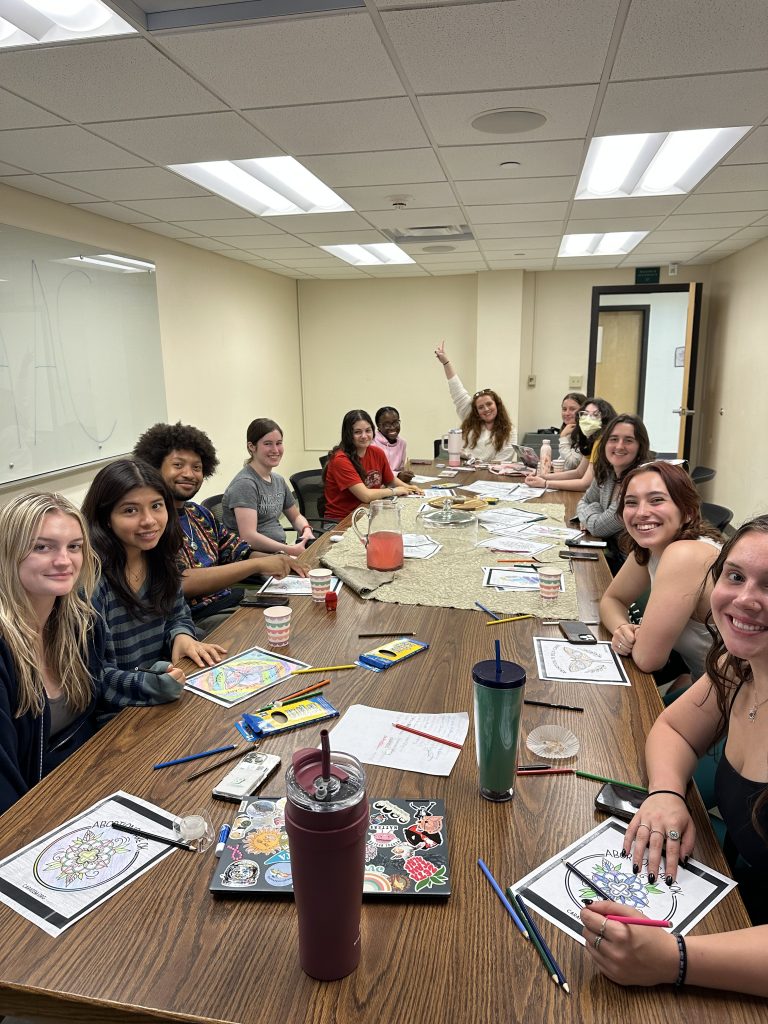
This coming May will mark two years since the president of the Binghamton University Abortion Advocacy Coalition (BAAC), Abbey Scherer, a senior majoring in social work, founded the organization. Scherer and most of BAAC’s E-Board are graduating this semester with hopes that future members will continue to build where they left off.
Pipe Dream interviewed Scherer to discuss BAAC’s current goals and operations.
The interview has been edited for both length and clarity.
Q: What are the BAAC’s main goals and what are some ways that you work toward this goal?
A: Our goal when we first started was destigmatizing and opening up the conversation about abortion access and abortion in general on campus. Of course we have PPGen [Planned Parenthood Generation] and FemCo [Feminist Collective] which are amazing organizations, but they cover a wide range of things and I decided that we should have something that focuses on abortion. We now have a relationship with Southern Tier Women’s Health Services, which is the abortion clinic in the area, and BU administration to blend the communities as much as possible. This looks like giving the clinic abortion [after care] kits (which we have ourselves) and we, along with PPGen and FemCo worked with [Decker Student Health Services Center] administration to set up an uber business account so they can pay for students’ transportation if they get referred.
… We talk about abortion through the lens of reproductive justice, which includes applying the theory of intersectionality to our work. For example, BAAC is collaborating with the Q Center to talk about abortion as gender-affirming care, we encourage support for Palestine by advertising and showing up for rallies and marches, we teach Reproductive Justice as Black history in our RJ 101 Training and talk about climate justice at the Earth Day festival.
Q: How has the overturning of Roe v. Wade specifically affected reproductive rights throughout the country?
A: Roe being overturned was not a shock but did a lot of damage in terms of legality — really people say Roe was the floor, not the ceiling. Though access goes so much further in terms of transportation expenses, people being afraid of protestors, insurance coverage and wait times. There are states now where you can’t get an abortion at all. It’s worse than before but those same problems were always there, just not for everybody. Communities of color and low-income communities always had access issues. Now there are cases where the Supreme Court is looking to ban Mifepristone — one of the pills used for medication abortion. Even in New York state, where we’re generally protected in terms of reproductive health, a federal decision would impact us as well. But I think by educating people about these things through advocacy and policy work, all things that BAAC encourages, are really important for preventing these things in the future.
Q: Can you discuss various statewide abortion bans and their impacts on people with uteruses?
A: There [are] a wide range of bans. Some states have full bans where you can’t get an abortion at all and some states have six-week bans where most people don’t even know that they’re pregnant by six weeks. Even states where they ban abortions past the second trimester, like later term bans — those really confuse practitioners and in states where you see that, even when you have an exception for the life of the mother, doctors are so afraid that they might lose their license and not practice anymore that they will wait until someone is about to die before they give them an abortion. Bans like that create a lot of gray areas that keep people from getting life saving procedures that they need. That’s really the problem with these bans.
Q: What would you say to someone who is against abortion rights?
A: It really depends on their reasoning for it, because some people feel that way from a religious perspective. For other people it’s not religious, it’s just they have been told a lot of lies that they think are facts. I would approach the conversation by asking, “Why do you feel that way?” We actually did a meeting where we talked about how to talk to antis [people who are anti-abortion] and we made a spreadsheet of their reasons and what you can respond with. But it just comes down to bodily autonomy. People should be able to make their own choices about their body and I’m sure people who are against abortion wouldn’t want other people making decisions about their body when it comes to other areas. If they can understand that concept then you can work from there.
Q: What are some ways that students at BU can become involved in the BAAC?
A: Our E-Board right now has a lot of seniors and there’s going to be a lot of gaps to fill on the [E-Board], so we’re looking for younger people but we also have other opportunities for people to get involved. Southern Tier Women’s Health Services is currently looking for clinic escorts — students who will help protect patients from protestors and make sure that they get to their appointments. You can bring your information to us, and we can set you up with them. We’ve also done volunteer days for Family Planning, which is downtown. They don’t do abortions, but they do abortion referrals and options counseling. We also do a monthly newsletter where we encourage students to write in, and we’ll feature their writing pieces in our newsletter.
Q: What are your hopes for the future of BAAC?
A: I really hope that younger students can help us continue our work and expand. We just submitted our chartering application and that would really help us maintain a presence in our community. I’m hoping to expand outside of campus as well, and I would love to see it become more of a Binghamton community organization than just a BU organization.


